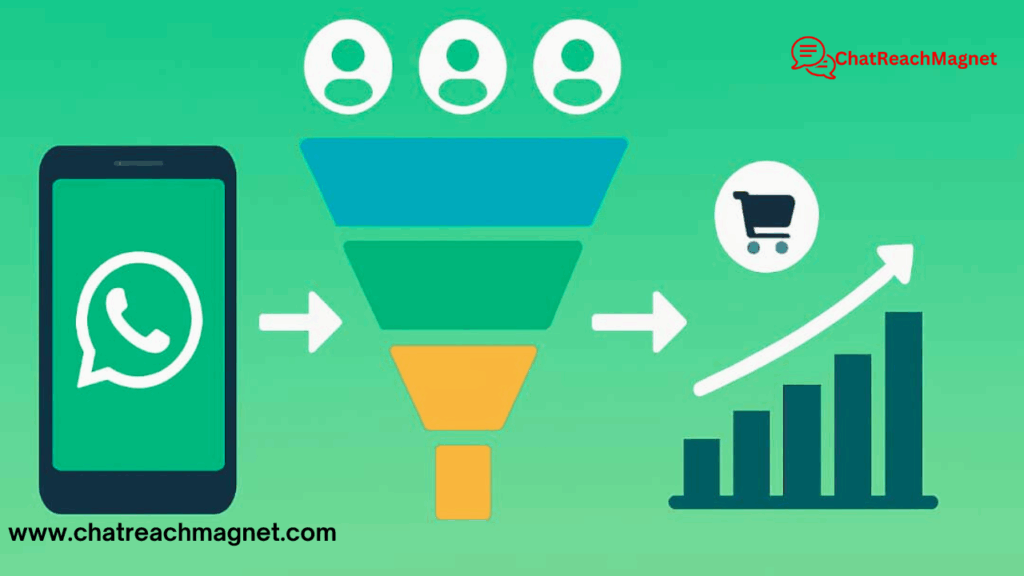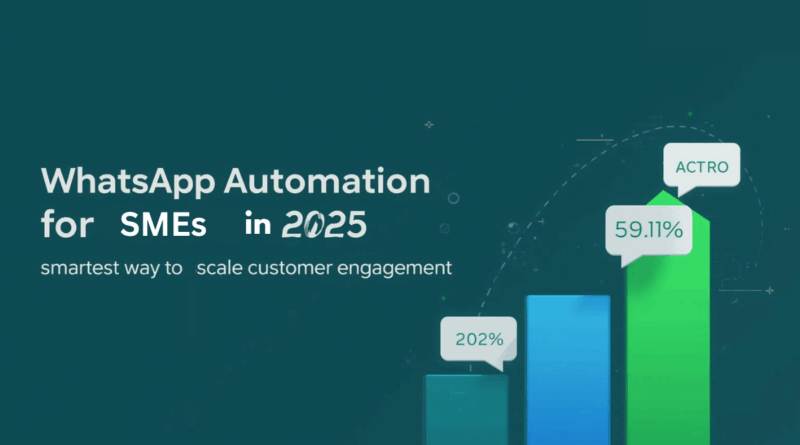WhatsApp Automation for SMEs: The Smartest Way to Scale Customer Engagement in 2025
Small and medium-sized enterprises (SMEs) are entering 2025 with one clear reality: customers want faster responses, personalised experiences, and seamless communication.
With over 2.8 billion active users, WhatsApp has become the most convenient platform for businesses to meet these demands. However, manually attending to every message is no longer sustainable for SMEs that want to grow.
This is where WhatsApp automation steps in — transforming customer engagement from stressful to strategic.
In 2025, automation is not just a competitive advantage; it is becoming a necessity for SMEs that want to scale without increasing cost or workload.
In this blog post, we explore how WhatsApp automation works, why it matters, and the smartest ways SMEs can use it to accelerate growth this year.
What Is WhatsApp Automation?

WhatsApp automation refers to using software or tools to automatically send, receive, sort, and manage messages on WhatsApp Business. Instead of manually responding to every enquiry, SMEs can automate:
- Welcome messages
- Quick replies
- Order confirmations
- Appointment reminders
- FAQs
- Payment notifications
- Broadcast updates
- Customer support workflows
The goal is simple: deliver fast, consistent, and personalised communication around the clock.
Why WhatsApp Automation Matters for SMEs in 2025
#1. Customers Expect Instant Responses
A study from 2024 showed that 73% of customers abandon a business after poor communication. With WhatsApp automation, SMEs can respond instantly — even outside working hours — increasing trust and reducing customer loss.
#2. Lower Operational Costs
Instead of hiring more staff, automation handles bulk enquiries effortlessly. SMEs can save up to 40% on operational expenses while still improving customer experience.
#3. Better Customer Satisfaction
Automated messages ensure that no enquiry goes unattended. Customers get real-time updates, accurate information, and personalised follow-ups, all contributing to higher satisfaction.
#4. Reduced Human Errors
Manual processes lead to mistakes — missed messages, wrong details, late replies. Automation ensures accuracy, consistency, and professional communication.
#5. Scalability Without Stress
As your business grows, the number of messages also grows. WhatsApp automation allows you to scale without feeling overwhelmed.
Top Ways SMEs Can Use WhatsApp Automation in 2025
#1. Automate Customer Onboarding
When a new customer sends a message, an automated welcome flow can:
- Introduce your business
- Share available services
- Provide pricing
- Offer quick links to catalogue or website
First impressions matter, and WhatsApp automation helps you make a perfect one.
#2. Smart FAQs and Quick Replies
Instead of answering repeated questions, automate:
- Business hours
- Delivery timelines
- Pricing
- Return policy
- Booking procedures
This saves time and ensures customers get accurate answers instantly.
#3. Automated Sales Funnel

SMEs can create a WhatsApp sales funnel that:
- Collects leads
- Qualifies prospects
- Sends product recommendations
- Follows up automatically
- Closes sales
It works like a full-time salesperson — but with zero fatigue.
#4. Appointment and Reservation Reminders
From clinics and salons to event planners and training centres, automated reminders help reduce no-shows by more than 50%.
#5. Order Tracking and Notifications
Whether you run an online store or provide home services, WhatsApp automation can send:
- Payment confirmation
- Delivery updates
- Tracking numbers
- After-sales follow-up
Customers love transparency and timely information.
#6. Automated Customer Support
Integrate chatbots that can troubleshoot issues, answer complaints, or gather customer information before passing the conversation to a human agent.
This reduces response time drastically.
Best WhatsApp Automation Tools SMEs Should Use in 2025
#1. WhatsApp Business App (Free)
Perfect for micro-businesses. Offers basic automation like quick replies, labels, greeting messages, and catalogue features.
#2. WhatsApp Business API (For Growing SMEs)
Ideal for businesses that want full automation, bulk messaging, integrations, and chatbots.
3. Third-Party Tools
SMEs can use tools like:
- Chatreachmagnet – bulk messaging, automation workflows, and WhatsApp chatbot features.
- CRM tools such as Zoko, Wati, Respond.io, or Boto.
These platforms offer advanced automation perfect for small businesses aiming for professional communication.
Best Practices for WhatsApp Automation in 2025
#1. Keep It Human
Automation should not feel robotic. Use warm, friendly language.
#2. Personalise Messages
Use customer names and customise responses based on their behaviour or history.
#3. Don’t Over-automate
Balance is key. Always make it easy for customers to reach a human when needed.
#4. Follow WhatsApp Policies
Avoid sending unsolicited bulk messages. Get permission before broadcasting.
#5. Test and Improve
Analyze messages, response time, and customer feedback to optimise your automation flows.
How WhatsApp Automation Helps SMEs Scale
#1. More Time for Core Business Activities
Business owners gain time to focus on marketing, strategy, product development, and customer service quality.
#2. Higher Sales Conversion
Instant responses increase the chances of converting prospects into buyers.
#3. Increased Customer Loyalty
Customers feel valued when communication is consistent and efficient.
#4. Greater Work Efficiency
Your team works smarter, not harder, thanks to automated processes.
Conclusion
In 2025, WhatsApp automation is one of the smartest investments an SME can make. It saves time, reduces stress, enhances customer relationships, and boosts revenue — all while maintaining a professional image.
Whether you are running a retail shop, service business, restaurant, online store, health facility, or agency, WhatsApp automation can take your customer engagement to the next level.

